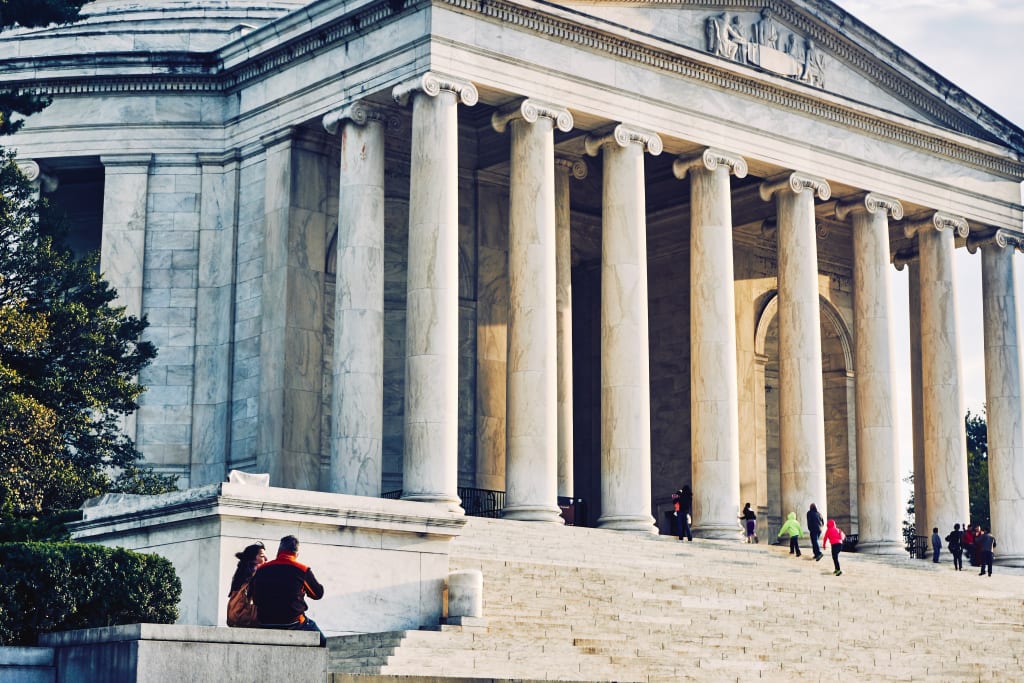Relationships and the Law
Gentleness is better than force.

Relationships and the Law:
There is a vast difference between allowing people to come together and forcing them to. One of the basic laws of physics—Newtonian version at least—says that to every action there is an equal and opposite reaction. Legislation to force racial unity and integration will result in opposition. Having rules and an ambience that allows integration gradually over time will succeed naturally.
There is a tendency in most countries to always think the government must make laws to deal with any perceived difficulty. I cannot prove this, but my feeling is that this has much to do with the fact that many politicians are trained lawyers and many of the senior bureaucrats who actually run things are also trained in the law, and they mix in social circles with the legal industry's high earners. The media is also partly to blame, as are all those who rush to social media sites to proclaim “something must be done, the government must act.”
No amount of legislation or even enforcement will change an attitude. It takes time and the experiencing of reality to change an attitude. It is possible to criminalise violent actions which are intended to force others to change a way of life, but even these laws will not change the attitude or belief of either party. Even in the most repressive of one party states, they fail to eradicate religious belief. Even in the most extreme religious governance, they can not destroy some people's alternative beliefs. Some of the versions of the Christian bible state that, in the kingdom of heaven, there are many mansions and in many others, more philosophical belief systems, there are references to the many different paths to enlightenment. Making laws can superficially control actions; they can not control belief.
The ancient Chinese sages maintained that the more laws the ruler makes, the more criminals they have to deal with. This is true, but it is also a fact that in our vastly overcrowded world, we have to have generally accepted standards of behaviour towards each other and each other's property. Enforced rules and laws that ensure compliance to these standards is necessary. The basis of what is to be generally accepted is the majority view. Rules and laws that ensure aggressive acts are curtailed is one thing; trying the make laws which say what a person must think is quite another. Criminals, by definition, are people who do not comply to laws. It is not a criminal act simply because they do not behave as the majority do, but it becomes one when they break laws made to ensure compliance with acceptable behaviour. Making it a crime to believe a different view from that of the rulers is dictatorship, and while these are said to make the trains run on time, they also have social unrest that may be physically suppressed, but it is boiling away under the surface.
Love and hate are two much overused words. The overuse has distorted the meaning. Hate is an extreme dislike; a feeling that is overwhelmingly destructive towards the hated person or object. Yet people say I hate waiting for the bus. This is nonsense. They dislike waiting, but this is not hate. Love is the opposite extreme emotion. It is an irrational desire to connect and become part of the person or object loved. Saying "I love this TV show" is just as ridiculous as saying "I hate it."
In place of attempts to force people to unify, we need to provide the time and space for personal experiences to overcome conditioned belief. Putting too many people into too small a space and using the law enforcement to make people adjust is not going to work. Take the analogy of cooking; stoke up pressure in a closed pot, and you get an explosion. Dissipate pressure and gently simmer slowly, then the contents will all find a level that gradually adjusts and becomes a uniform whole. This takes time and it will not happen if too much pressure or too many different ingredients are added too often.
Many of the racial problems in the world today are not directly caused by personal dislikes, they are caused by too sudden an influx of too many non-indigenous people without the time or space to gradually integrate. This makes for discontent that can be exploited for political or monetary gain. If the indigenous people think the newcomers are going to settle and integrate to the existing ways, they have no problem. If the indigenous people are led to believe, by the sheer numbers or by the suddenness, or by becoming convinced they will be deprived of their own rights, or by the rhetoric from some political extremist, they will become discontented and refuse to even consider the migrants as people. The worst thing that can be done is the making of laws stating that the indigenous people must accept large numbers of immigrants, or making laws which can be interpreted as demanding the indigenous people change their existing beliefs. These will cause tensions that will become damaging. The law ends up having the opposite effect to the stated intention. The law makers and their bureaucratic officials are not stupid, they must know that they are causing discontent. So why do they do it? Is it a determination to impose some social experiment on the people? Such arrogance exists, but it can be so very destructive to the population in general.
About the Creator
Peter Rose
Collections of "my" vocal essays with additions, are available as printed books ASIN 197680615 and 1980878536 also some fictional works and some e books available at Amazon;-
amazon.com/author/healthandfunpeterrose
.






Comments
There are no comments for this story
Be the first to respond and start the conversation.